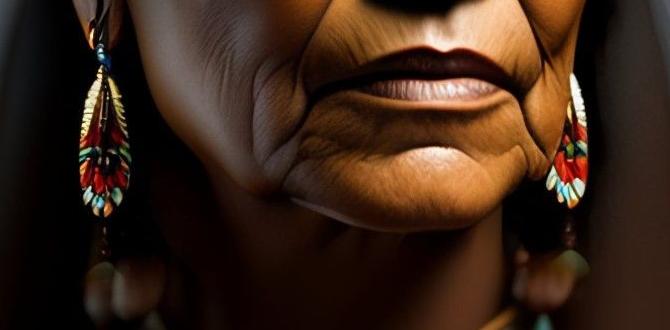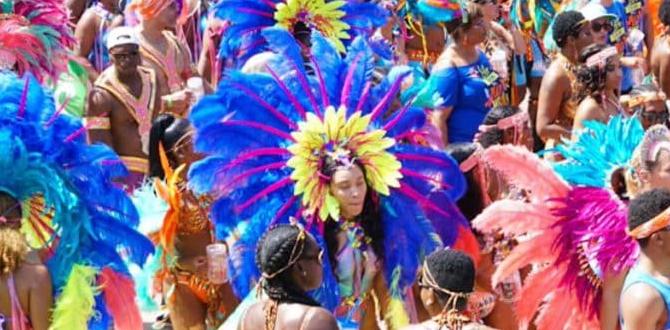Beirut budget travel guide? Absolutely! Explore Beirut’s vibrant culture and delicious food without breaking the bank. Discover affordable accommodation, cheap eats, free activities, and smart transportation hacks for an unforgettable Lebanese adventure.
Beirut is a city that truly captivates the soul. It buzzes with an energy unlike anywhere else, from its bustling souks to its serene seaside Corniche. While some might imagine visiting such a dynamic place is expensive, I’m here to tell you that’s not the case! Traveling on a budget to Beirut is not only possible but can be incredibly rewarding, allowing you to connect with the city’s heart and soul in a more authentic way.
As your guide from Journey Essentials, I want to make sure your trip is comfortable, stress-free, and packed with amazing experiences, no matter your budget. We’ll cover everything you need to know to make your Beirut adventure a fantastic reality.
Navigating Beirut on a Shoestring: Quick Overview
When planning your trip to Beirut, remember that smart choices can unlock the city’s treasures affordably. Look for guesthouses or hostels in vibrant neighborhoods, enjoy delicious street food and modest local eateries, and take advantage of free attractions like museums and walking tours. Public transport, though sometimes lively, offers the most budget-friendly way to get around. With these essential tips, you can experience the magic of Beirut without overspending.
Essential Beirut Budget Travel Tips
Beirut is a city of contrasts, offering ancient history, modern marvels, and a culinary scene that will enchant your taste buds. To experience its magic without stretching your wallet, focus on smart planning and embracing local ways. Here’s how you can make the most of your budget adventure in Lebanon’s capital.
Finding Affordable Accommodation
Your accommodation is often the biggest travel expense, but in Beirut, there are plenty of budget-friendly options. The key is to research and be flexible.
- Hostels: For solo travelers or those looking to meet fellow adventurers, hostels are a fantastic choice. They offer dormitory-style beds and often private rooms at very reasonable prices. Many hostels also have communal kitchens, which can save you money on meals. Look for hostels in popular areas like Mar Mikhael or Gemmayzeh, known for their lively atmosphere and proximity to attractions.
- Guesthouses and Budget Hotels: Beirut has a good selection of smaller guesthouses and budget hotels scattered throughout the city. These often provide a more personalized experience than larger chains and can be found for a fraction of the price. Read reviews carefully to ensure cleanliness and safety.
- Airbnb: Platforms like Airbnb can also offer great value, especially if you’re traveling with a partner or a small group. Renting a private room in a local’s apartment or a small studio can be more affordable and give you a glimpse into daily life.
- Location: Consider staying slightly outside the absolute city center. Neighborhoods like Hamra or areas closer to the university campuses can offer more affordable options, and Beirut’s public transportation (more on that later!) makes it easy to reach central attractions.
Eating Well on a Budget
Lebanese cuisine is world-renowned for its delicious flavors, and the good news is that it’s also incredibly budget-friendly. You can eat like royalty without spending a fortune.
- Street Food and Manakish: One of the best ways to eat cheaply and authentically is to embrace street food. Look for vendors selling manakish – a delicious flatbread baked with za’atar (a mixture of thyme, sesame seeds, and sumac) or cheese. It’s cheap, filling, and perfect for breakfast or a snack. You’ll find these stalls everywhere.
- Local Bakeries (Bakeeries): Bakeries are gold mines for affordable eats. Besides manakish, they offer a variety of pastries, sandwiches, and sometimes even small meals.
- Shawarma and Falafel Shops: Beirut excels at shawarma (marinated meats cooked on a spit) and falafel (deep-fried balls made of ground chickpeas or fava beans). These are staple, inexpensive, and satisfying meals. Look for busy local spots – a sure sign of quality and good value.
- “Home-style” Restaurants: Seek out small, unassuming restaurants that serve traditional Lebanese dishes. These places often have a daily special that is both delicious and very affordable. They might not have fancy decor, but the food is authentic and hearty.
- Picnics: Grab some fresh bread, cheese, olives, and labneh (strained yogurt) from a local market and head to a park or the Corniche for a delightful and inexpensive picnic lunch.
Top Budget-Friendly Dining Spots in Beirut
While wandering the streets, keep an eye out for these types of establishments:
| Type of Eatery | What to Expect | Typical Price Range (USD)** |
|---|---|---|
| Manakish Bakery | Za’atar or cheese flatbreads, simple pastries. Great for breakfast/snack. | $0.50 – $2.00 |
| Shawarma/Falafel Stand | Chicken/meat shawarma wraps, falafel sandwiches, plates. Quick and filling. | $2.00 – $5.00 |
| Local Cafeteria/Eatery | Daily specials, stews, rice dishes, grilled meats. Hearty meals. | $5.00 – $10.00 |
| Supermarket Deli/Bakery Section | Pre-made sandwiches, salads, dips, bread. Good for picnics/light meals. | $1.00 – $5.00 |
Note: Prices are approximate and can vary. It’s always a good idea to check local prices as you go.
Affordable Sightseeing and Activities
Beirut offers a wealth of culture and history that you can explore without spending much, or even anything at all!
- Walk the Corniche: The picturesque seaside promenade, Al-Corniche, is the perfect place for a leisurely stroll, people-watching, or enjoying the Mediterranean breeze. It’s completely free and you can walk for miles, passing by local fishermen, joggers, and families.
- Explore Beirut Souks: While the old souks are now more modern shopping arcades, don’t miss wandering through the areas that still retain some of their traditional charm. Window shopping and soaking in the atmosphere is free!
- Visit the National Museum of Beirut: A must-visit for understanding Lebanon’s rich history, the museum houses an impressive collection of ancient artifacts, including sarcophagi and intricate mosaics. The entrance fee is very reasonable, making it a worthwhile cultural investment. For more information on current exhibitions and opening times, you can check their official website or resources like Travel + Leisure’s guide.
- Wander through Downtown Beirut (Beirut Central District): Even if you’re not shopping, take time to walk around the meticulously rebuilt downtown area. Admire Ottoman-era architecture alongside modern buildings, and visit iconic landmarks like the Mohammad Al-Amin Mosque (entry is free, but dress respectfully).
- Discover Street Art: Beirut has a vibrant street art scene. Take a self-guided tour through neighborhoods like Mar Mikhael and Gemmayzeh to discover colorful murals and thought-provoking graffiti.
- Relax at a Public Beach: While some private beach clubs can be pricey, there are public access points along the coast where you can enjoy the sea for free or a minimal fee.
- Free Walking Tours: Keep an eye out for companies or organizations that offer free walking tours of the city. These are incredibly informative and a great way to get your bearings while learning about Beirut’s history and culture from a local perspective. Tips for the guide are customary.
Smart Transportation Hacks
Getting around Beirut efficiently and affordably is key to managing your budget.
- Service Taxis (Shared Taxis): These are the backbone of public transportation for many locals. Service taxis are regular cars that follow fixed routes. You’ll find them at designated points around the city. Hop in, tell the driver your destination, and share the ride with other passengers. The fare is very low, and it’s an authentic local experience. Be prepared for a lively atmosphere!
- Buses: While not as extensive as the service taxi network, public buses do operate. They are extremely cheap but can be crowded and their routes and schedules may not always be obvious to tourists.
- Walking: Beirut is a city best explored on foot, especially within neighborhoods. Many attractions, restaurants, and shops are clustered together, and walking allows you to discover hidden gems you might otherwise miss.
- Ride-hailing Apps: Apps like Bolt and Uber are available in Beirut and can be a convenient option, especially for longer distances or when traveling at night. While more expensive than service taxis, they offer fixed prices and a more predictable journey. Compare prices between apps for the best deal.
- Avoid Taxis Without Meters: If you opt for a regular taxi, always ensure the meter is used or agree on a price before you get in, especially for airport transfers or longer journeys. Negotiate politely but firmly.
Managing Your Money Wisely
Keeping track of your spending is crucial for budget travel.
- Currency Exchange: The official currency is the Lebanese Pound (LBP). While there are exchange bureaus, it’s often best to get good rates at official banks. ATMs are widely available, but check with your bank about foreign transaction fees. It’s wise to carry some cash, especially for smaller vendors and street food.
- Bargaining: In souks and smaller shops, polite bargaining is sometimes expected, especially for non-perishable goods. However, fixed-price shops and restaurants do not require bargaining.
- Track Expenses: Use a simple notebook or a budgeting app on your phone to keep tabs on where your money is going. This helps you stay aware and make adjustments if needed.
- Water: Stay hydrated by purchasing large bottles of water from supermarkets, which are much cheaper than buying individual bottles from small shops or cafes.
Packing Essentials for Comfort and Convenience
Being prepared can save you money and ensure a more comfortable trip. As Michael C. Herrera of Journey Essentials, I always emphasize packing smart.
- Comfortable Walking Shoes: You’ll be doing a lot of walking, so invest in a good pair of supportive shoes.
- Modest Clothing: While Beirut is a relatively liberal city, dressing modestly, especially when visiting religious sites, is respectful. Lightweight, breathable fabrics are best for the climate.
- Light Scarf or Shawl: Useful for covering your shoulders when entering religious buildings, or for cooler evenings.
- Reusable Water Bottle: Stay hydrated and reduce plastic waste.
- Sun Protection: A hat, sunglasses, and sunscreen are essential, especially during warmer months.
- Travel Adapters: Lebanon uses Type A, B, and C electrical outlets. Ensure you have the correct adapter; you can find universal ones that cover most needs.
- Basic First-Aid Kit: For minor cuts, headaches, or stomach upsets. Consider including items like pain relievers, antiseptic wipes, and plasters. For longer trips or specific needs, like managing adult or child diapers for comfort on flights or during extended travel, packing a discreet supply can significantly reduce stress and enhance your travel experience. Many travel blogs now highlight the importance of having these personal care essentials sorted well in advance. You can research options like AvailMed or similar suppliers for discreet and convenient travel packaging for adult and child essentials.
- Portable Power Bank: To keep your phone charged for navigation, photos, and communication.
Safety and Respectful Travel
Beirut is generally a safe city for tourists, but like anywhere, it’s wise to be aware and take precautions.
- Be Aware of Your Surroundings: Especially in crowded areas, be mindful of pickpockets. Keep valuables secure.
- Respect Local Customs: Lebanon is a diverse country with a mix of cultures. Be respectful of local traditions, especially concerning dress code when visiting religious sites and during religious periods like Ramadan.
- Stay Informed: Keep up-to-date with local news and any travel advisories issued by your home country’s government. Organizations like the U.S. Department of State provide valuable information.
- Drink Bottled Water: To avoid stomach issues, it’s generally recommended to drink bottled or filtered water.
Sample Budget Itinerary: One Day in Beirut
Here’s a taste of what your budget-friendly day could look like.
- Morning (8:00 AM – 12:00 PM): Start your day with a cheap and delicious manakish from a local bakery. Then, head to the National Museum of Beirut (around $5 entrance). Spend a couple of hours immersing yourself in ancient history.
- Lunch (12:00 PM – 1:30 PM): Grab a filling falafel or shawarma sandwich from a street vendor or a budget-friendly eatery near the museum.
- Afternoon (1:30 PM – 5:00 PM): Walk to Downtown Beirut. Explore the historical center, admire the architecture, and visit the majestic Mohammad Al-Amin Mosque (free entry, dress modestly). Afterward, stroll along the Corniche, enjoying the sea views and local life.
- Late Afternoon/Early Evening (5:00 PM – 7:00 PM): Wander through the streets of Mar Mikhael, admiring the vibrant street art. Perhaps enjoy a cheap, local coffee.
- Dinner (7:00 PM onwards): Find a small Lebanese restaurant in the Gemmayzeh or Mar Mikhael area and enjoy a hearty, authentic meal (like a mezze spread or grilled items) for a reasonable price.
Frequently Asked Questions
What is the cheapest way to get around Beirut?
The absolute cheapest ways to get around Beirut are by walking and using service taxis (shared taxis that follow set routes). Buses are also very inexpensive. Ride-sharing apps like Bolt and Uber are convenient but cost more than service taxis. Always agree on a price with regular taxis before getting in if they don’t use a meter.
Is Beirut expensive to visit?
Beirut can be as expensive or as budget-friendly as you make it. By choosing affordable accommodation, eating at local eateries and street food stalls, using public transportation, and focusing on free or low-cost attractions, you can visit Beirut on a relatively small budget. Luxury hotels and fine dining will, of course, increase costs significantly.
What currency is used in Beirut?
The official currency is the Lebanese Pound (LBP). While the LBP is official, U.S. dollars are widely accepted, and sometimes preferred, especially for larger purchases or tourist services. Exchange rates can be a bit complex depending on the situation; it’s best to have both LBP and USD and use the best rate available for your transactions. Check current exchange rates from a reliable source like the XE Currency Converter.
What should I pack for a budget trip to Beirut?
Pack comfortable walking shoes, light and modest clothing, a reusable water bottle, sun protection (hat, sunglasses, sunscreen), a travel adapter, and a basic first-aid kit. For personal comfort and peace of mind, especially for longer journeys, consider packing discreetly for any personal care needs, such as adult or child diapers, from trusted suppliers.




